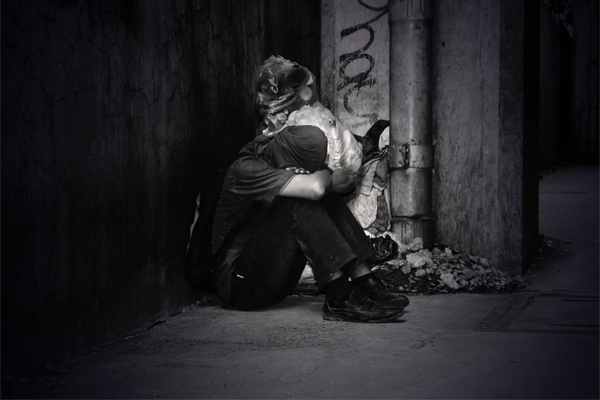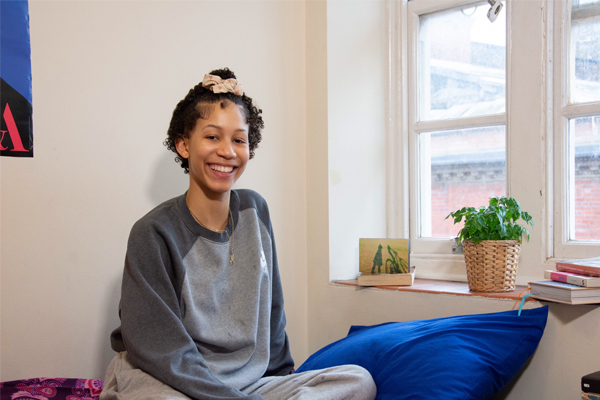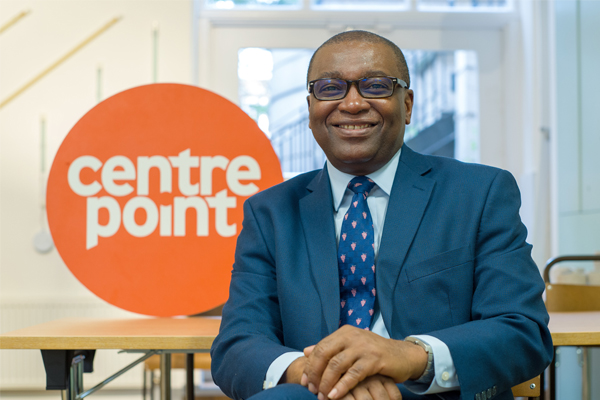In this week’s guest interview, Seyi Obakin OBE, CEO of youth homeless charity Centrepoint, talks about his rise to the top in both the finance and charity sectors, as well as the challenges he faced along the way as a Black, Asian and Minority Ethnic (BAME) leader. He also explains why there’s an increase in the number of homeless BAME youth and outlines his vision for ending youth homelessness.
FAIR PLAY TALKS: Tell us about your journey to the top leadership ranks in the UK?
SEYI OBAKIN: When I think about the young people at Centrepoint I work with today, I can completely understand when they say ‘I don’t know what I want to do’ with their lives because I didn’t know myself. We have to give young people the chance to try a range of things because you do best when you do something you enjoy. I decided to study economics and then worked in the civil service before deciding to do accounting. Then I left that and went into financial services. It was when working in mortgage banking that I became exposed to the issue of housing and the way housing has an impact on people’s lives. I wanted to make a difference and find a meaningful way to contribute, so I looked at social housing.
I spent many years working in social housing. During that time I had the opportunity to contribute to what Centrepoint was doing. When I had that opportunity I knew instinctively that this is what I wanted to do if I could persuade the people who ran the company to give me a chance. I got involved in finance there and very quickly got into all the different things Centrepoint does. Now, I’ve been CEO for over 10 years. [Obakin joined Centrepoint in 2003 as Finance Director and was appointed Chief Operating Officer in 2006 and Chief Executive in 2009].
BAME LEADERSHIP CHALLENGES
FAIR PLAY TALKS: How challenging was your rise to leadership in the UK as someone from a BAME background?
SEYI OBAKIN: Being from a BAME background did affect my rise to the top leadership position, but it didn’t stop me. I have experienced race-related incidents. Some would be direct incidents and others would be things that happen between individuals – you and they would know, but neither of you can prove it, and it wouldn’t stand up anywhere. Then there is the experience where you know what is happening but the other person being racist is completely unknowing. We’d now call this unconscious bias. Then there are issues you wouldn’t know about – when people talk about you in your absence and make decisions that do affect you but you would never know.
For me personally, and for a lot of people, there is an element of luck that comes into this. Luck in the sense of finding yourself at the right place at the right time. Because all of those things happen all of those times. Usually none of these race-related incidents are significant in their own right. When you put it all together, then it does make an effect, and wears you down.
I have gone for opportunities for which, if I wasn’t a BAME person, I would have been fine. I have been in positions where I clearly do the job, but the employer thought I wasn’t qualified. And then you see that the person who has been asked to do the job is no different to me other than their colour.
I once approached a charity who said they were looking for accounting work – for volunteers – looking for a few hours every week. I wanted to do something useful so I went along. They said ‘we are not looking for someone like you’. This kind of experience can weigh you down, but you have to make choices, and you’re making these choices all the time. The choices are: is this something worth fighting about? Mostly it’s not. Just let it go and carry on. In my mind, I try to separate my purpose with the process. Here is where I want to get to – do I want to get bogged down here? If you come to the view that the process will derail your purpose, then keep focused on your purpose.
FAIR PLAY TALKS: Have things have changed for BAME leaders over the past 10 years?
SEYI OBAKIN: Yes, I think it has. The issue that comes up is whether the change is fast and robust enough. There is no one who would say that the issue of racism is as bad today as it was in the ’70s or ’80s or ’90s, so things have changed. Have they changed enough? No. But I think they will continue to change. Organisations are more aware. They’ve not done enough about it, but they are more aware and I think things will continue to change.
FAIR PLAY TALKS: What more could organisations be doing to help more leaders of minority backgrounds rise to the top?
SEYI OBAKIN: The difficulty that we have now is not direct race-related incidents. The next level is no longer for us as individuals to say ‘I’m not racist’, but to challenge ourselves to say ‘I’m not racist, but how do I know that?’ What is the physical evidence that I can point to that might give me justification to say I’m not racist? That’s at the level of the individual. It’s not enough to say I’m not racist, I must be anti-racist.
To give you an example – if I’m in a gathering of White people, someone makes a racist remark, there’s no Black people in the gathering, the anti-racist thing would be to speak up and say ’that’s not right’. How do you react when the spotlight and the issue isn’t on you?
At the level of organisations, it’s all well and good to count representation in organisations, but how do we change our systems to be unbiased? To what extent do business processes correct inherent bias, because we didn’t start by writing bias into the system. Are we prepared to audit the way businesses operate to see if the systems have incubated unconscious bias?
The other thing businesses can do is look for points of leverage within an organisation. Decisions are made at different levels of the organisations, not just who gets promoted. How do we find what these points of leverage are and how to we ensure that there is diversity of thought at these points of leverage? You might set out at the board level and say ‘this is what we want’ but there are points of leverage far before this that are the face of who people interact with. You have to find those points and influence what happens. When you do that, the message gets through. We have to start at the top and go right through the organisation. That is the next phase of change.
FAIR PLAY TALKS: What advice can you offer other young people who want to rise to the top of organisations in the UK?
SEYI OBAKIN: My wish is for young people to get work experience in many different fields. Middle class kids have that opportunity when they are young, but not all do. We should find a way to give all young people a chance to have this broad horizon, so I advocate for careers advice from when kids enter secondary skills. It’s about opening their eyes and horizons.

YOUTH WORK & VISION
FAIR PLAY TALKS: Two-thirds of Centrepoint’s young people in London are from BAME backgrounds. Why is this is the case?
SEYI OBAKIN: London is the most cosmopolitan city in the entire country. Two-thirds of people in London are not born in England. It’s a very diverse place, so I wouldn’t be surprised by that data. It’s a reflection of the population.
FAIR PLAY TALKS: What’s your vision for ending youth homelessness in the UK?
SEYI OBAKIN: Centrepoint’s mission is quite simple: to ensure all young people in the UK have a home and a job. We think this is the best way to give young people a bright future.
FAIR PLAY TALKS: What additional challenges has Covid-19 created for homeless people and organisations like Centrepoint?
SEYI OBAKIN: Our essential work did not stop while the world stopped around us and during lockdown. I had to ask people to put their health on the line and carry on going to work as frontline staff. It was not an easy ask, but we made a commitment to deliver unwavering support and I am proud my colleagues showed both leadership and compassion.
Our job is not yet over. Centrepoint is campaigning for affordable housing via our innovative Independent Living Programme, government funding to ensure we can continue running supported accommodation services, and to secure a fairer universal credit system for vulnerable young people.
Amid rising unemployment and severe uncertainty due to the ongoing management of COVID-19, there has never been a more important time for Centrepoint to be fighting for our young people’s right to a vibrant future.

For more information and practical advice on how to build a strong BAME leadership pipeline, click here.






































